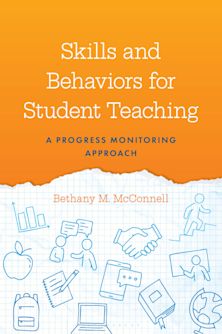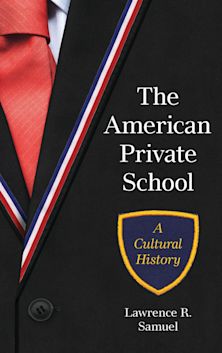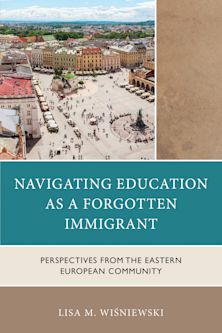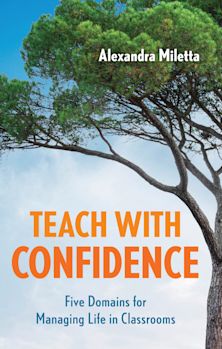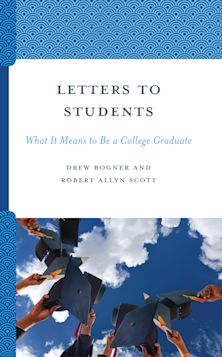- Home
- ACADEMIC
- Education
- Education - Other
- Supporting Muslim Students
Supporting Muslim Students
A Guide to Understanding the Diverse Issues of Today’s Classrooms
Supporting Muslim Students
A Guide to Understanding the Diverse Issues of Today’s Classrooms
This product is usually dispatched within 1 week
- Delivery and returns info
-
Free CA delivery on orders $40 or over
You must sign in to add this item to your wishlist. Please sign in or create an account
Description
This book provides school professionals - including teachers, principals, counselors, psychologists, and administrators - with a practical guide for supporting Muslim students in PK-12 schools. It is important that school professionals are culturally responsive and understand students’ backgrounds in planning effective instruction and creating safe schools. However, in the post-9/11 world, negative biases and stereotypes permeate mainstream discourses. Muslim students and their families often find themselves in conflict with school practices, procedures, and policies and do not often find themselves represented in the curriculum.
This book provides a practical guide to the important issues that may impact the lives and education of Muslim students. This books give essential information about Islam and Muslim students from authentic perspectives. This text will support teachers and other school professionals in their advocacy for all students to provide equitable and just educational opportunities for all students. Beyond basics such as food and clothing requirement, this text advocates for the implementation of anti-bias pedagogy for diverse learners. Through school-based vignettes and case studies, we situate experiences of Muslim students in lived realities and help school professionals think deeply and critically about who their students are and how to engage their experiences in the curriculum.
Table of Contents
Acknowledgements
Introduction
Chapter 1: Muslim Students in U.S. Public Schools
Chapter 2: Food and clothing
Chapter 3: Peer relationships
Chapter 4: Bullying
Chapter 5: Civic participation and belonging: An anti-bias curriculum
Chapter 6: School-community relationships
Conclusion
References
Product details
| Published | Jun 08 2017 |
|---|---|
| Format | Hardback |
| Edition | 1st |
| Extent | 180 |
| ISBN | 9781475832945 |
| Imprint | Rowman & Littlefield Publishers |
| Illustrations | 4 b/w illustrations; 5 b/w photos; 17 textboxes |
| Dimensions | 239 x 159 mm |
| Publisher | Bloomsbury Publishing |
About the contributors
Reviews
-
[T]he different chapters of this valuable work ask educators and schools to review their practices and analyse their pre-judgments, assumptions and provision around different aspects of inclusivity of Muslim students. . . The usefulness of the book lies in the simplified and practical approach that integrates nuanced theoretical analysis, background information, relevant case-studies and in-depth reflective questions. The book is essential reading for anyone interested in supporting young Muslim learners in non-Muslim Western majority contexts. It can be used by schools interested in enhancing their inclusive environment, by individual practitioners seeking to develop their professional practice or by tutors working with groups of trainees on diversity and inclusivity issues.
The Muslim World Book Review
-
Supporting Muslim Students is boldly and unapologetically designed to support and sustain teachers and other school professionals in their advocacy for all students. This very timely book will serve as a professional resource for those working in multicultural contexts who believe in social justice education—for those equity minded educators who are seeking the nuanced understandings needed to extend those beliefs to the Muslin students they serve. Well-researched and powerful in its breadth and depth, this text will empower educators who endeavor to become more empathetic and knowledgeable as they strive to help all students in their journeys toward becoming more sensitive and better informed citizens. In this book, the authors provide background information for Muslim students’ beliefs, practices, and lived experiences in the context of classrooms and schools. Moving beyond essentializing, stereotyping, and superficial understandings, this book advocates for the implementation of anti-bias pedagogy. It will help school professionals think deeply and critically about who their students are and how to integrate their students’ experiences in the curriculum with sensitivity and a strong knowledge base. Now, there are no more excuses—because these authors have made it possible for educators to succeed, going so far as to offer case studies, chapter summaries, critical points for consideration, discussion questions, and concrete strategies for school professionals interested in bridging the gap between school practices and students’ daily lives. Supporting Muslim Students is an essential must-read for educators who understand the importance of culturally responsive, culturally sustaining teaching.
Arnetha F. Ball, Professor, Stanford University Graduate School of Education
-
Although the number of Muslim students in U.S. schools throughout the nation is steadily increasing, most schools are still unprepared to welcome and teach them effectively. Supporting Muslim Students is a much-needed, practical guide that will help educators learn more about these students, explore ways to make curriculum and pedagogy be more inclusive, and reach out to Muslim families. With school and classroom-based vignettes and case studies, this text describes many of the challenges faced by Muslim students in our schools today. It will be an excellent resource for teachers, schools, teacher educators, and policymakers.
Sonia Nieto, University of Massachusetts-Amherst
-
These authors have created a very valuable work that can assist anyone towards a deeper understanding of educating Muslim students. It is meaningful, very readable, and very well organized. The case studies are excellent, in that they are positively oriented and model ways of thinking. Overall, I can imagine this being an important book for educators, administrators and staff. Reading it, I kept thinking, “How can I use this in class?” It was easy to read and enjoyable, and I feel honored to review it.
Jeanne Cofell, Assistant Professor, College of Saint Benedict and Saint John's University












